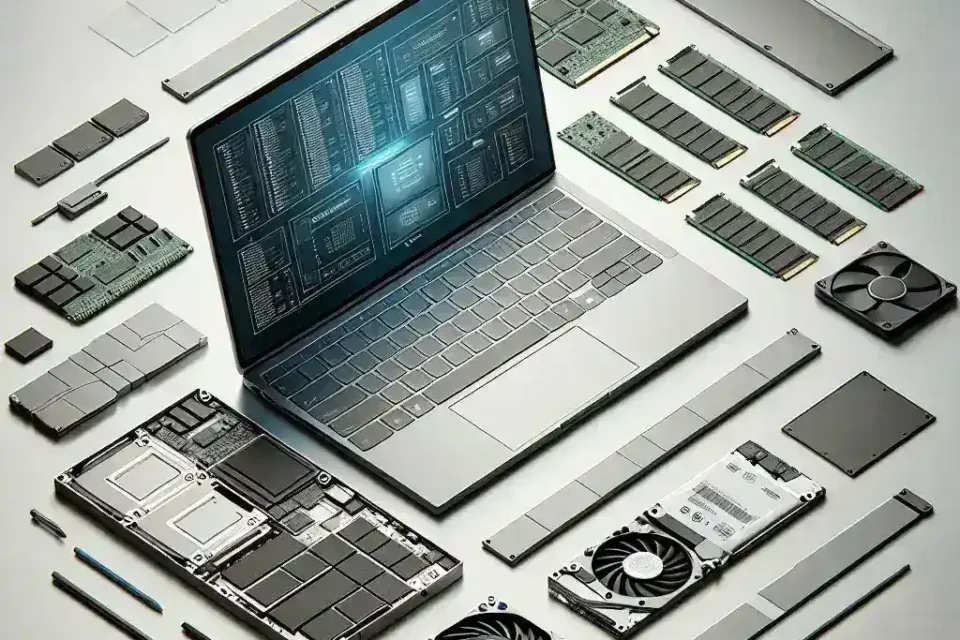Framework Laptop 13 Modular Design Praised

Introduction to the Framework Laptop 13
In an age where electronic waste is a growing concern, the Framework Laptop 13 emerges as a beacon of sustainability and innovation. Designed with modularity at its core, this laptop is not just another device; it’s a statement about the future of technology. Users and tech enthusiasts alike have praised its unique design that allows for easy repairs, upgrades, and personalization. In this article, we will delve into the modular design of the Framework Laptop 13, exploring its benefits, user experiences, and what the future may hold for this groundbreaking concept.
The Concept of Modularity
Modularity refers to the design principle that breaks a system into smaller parts, or modules, that can be independently created and then used in various combinations. For laptops, this means that users can replace individual components—like RAM, storage, and even the motherboard—without needing to replace the entire device. The Framework Laptop 13 embodies this philosophy, encouraging users to take control of their technology.
Historical Context of Laptop Design
Historically, laptops have been criticized for their lack of upgradability. Many models are designed to be as thin and light as possible, often resulting in components that are glued or soldered in place. This trend has led to increased electronic waste, as users must replace entire devices when a single component fails or becomes outdated. The Framework Laptop 13 addresses these issues by promoting a culture of repair and upgrade.
Key Features of the Framework Laptop 13
- Modular Components: Each part of the laptop can be easily accessed and replaced or upgraded. This includes the display, keyboard, battery, and even the CPU.
- Sustainable Materials: The Framework Laptop uses sustainable materials that reduce its environmental impact, making it a responsible choice for eco-conscious consumers.
- User-Friendly Design: The laptop features an intuitive design that allows users to make modifications without requiring specialized tools or technical expertise.
- Performance: With the ability to choose high-performance components, users can tailor the laptop to meet their specific needs, whether for gaming, professional work, or everyday use.
User Experiences and Testimonials
Users have shared their experiences with the Framework Laptop 13, often highlighting the joy of customizing their machines. One user, a software developer, stated, “I love being able to upgrade my RAM as my projects grow. It’s comforting knowing I can keep my laptop relevant for years.” Users appreciate the straightforward assembly process and the detailed guides provided by Framework, making upgrades feel accessible and rewarding.
Pros and Cons of the Modular Design
Pros
- Longevity: By allowing upgrades, users can extend the lifespan of their devices significantly, reducing electronic waste.
- Customization: The ability to choose components means users can tailor their laptops to fit their needs perfectly.
- Cost Efficiency: Over time, upgrading individual components can be more cost-effective than purchasing a new laptop.
Cons
- Learning Curve: While the design is user-friendly, there may still be a learning curve for those unfamiliar with laptop upgrades.
- Initial Cost: The upfront cost may be higher compared to traditional laptops, but this can be offset by the long-term savings from upgrades.
Future Predictions for Modular Laptops
The success of the Framework Laptop 13 could pave the way for a new generation of modular laptops. As consumers become more eco-conscious, the demand for sustainable technology solutions is likely to grow. Other manufacturers may take note of Framework’s innovative approach, leading to a broader industry shift towards modular designs.
Potential Innovations
Future iterations of modular laptops may include enhanced connectivity options, improved battery technologies, and even the integration of AI for smarter component management. As technology advances, the possibilities for customization and performance improvements are virtually limitless.
Cultural Relevance of the Framework Laptop 13
The Framework Laptop 13 is more than just a technological innovation; it represents a cultural shift towards sustainability and consumer empowerment. In a world where devices are often disposable, this laptop challenges the status quo, encouraging users to think differently about their technology choices. The move towards modular design aligns with broader societal trends emphasizing sustainability, repairability, and resilience.
Statistics on Electronic Waste
According to the Global E-waste Monitor, in 2021, around 57.4 million metric tons of electronic waste were generated worldwide, a figure that is projected to increase in the coming years. By promoting modular designs like the Framework Laptop 13, we can significantly reduce this amount, contributing to a more sustainable future.
Conclusion
The Framework Laptop 13’s modular design has been praised for its innovative approach to personal computing. By allowing users to easily upgrade and repair their devices, it not only extends the laptop’s lifespan but also contributes to a more sustainable future. As technology continues to evolve, the principles of modularity championed by Framework may very well dictate the future of laptops and consumer electronics as a whole.
Final Thoughts
In conclusion, the Framework Laptop 13 stands as a testament to what is possible when innovation meets sustainability. As we look towards the future of technology, it is clear that the demand for modular, repairable, and customizable devices will only continue to grow. The Framework Laptop 13 is not just a product; it’s a movement towards a more sustainable and user-focused approach to technology.
